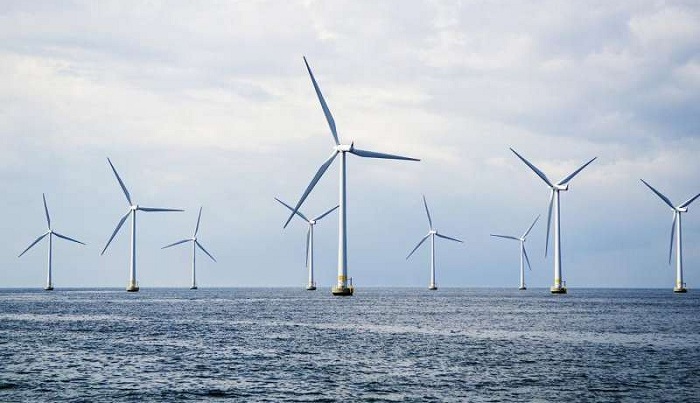State-run power giant NTPC and upstream oil firm ONGC have planned to boost the development of offshore wind energy in India, which is blessed with a coastline of about 7,600 km surrounded by water on three sides and has good prospects of harnessing this clean source. Earlier in May last year, NTPC and ONGC had signed a memorandum of understanding (MoU) to accelerate their footprint in the renewable energy space.
As per the MoU, NTPC and ONGC will explore the setting up of offshore wind and other renewable energy projects in India and overseas.
The pact also provided that they shall also explore opportunities in the fields of sustainability, storage, E-mobility and ESG (Environmental, Social and Governance) compliant projects.
Now, the MoU assumes significance in view of, almost doubling the target of renewable energy capacity addition to 60GW by 2032 by NTPC last month.
Moreover, NTPC has also shown its intention to bring an initial public offer of its arm NTPC Renewable Energy Ltd to raise funds for achieving 60 GW clean energy capacity by 2032 which requires about Rs 2.5 lakh crore investment.
A senior official said that NTPC as well as ONGC want to boost the offshore wind energy capacity in the country which is more efficient than the onshore wind turbines.
The official further said that the onshore wind turbine efficiency is up to 25 per cent while offshore windmills can be 50 to 60 per cent efficient and this is relevant in view of limited land resources in the country and also safety aspects.
Keeping in view the 7,600 km long coastline and the expertise of ONGC in handling offshore operations, this association can bring a sea change in this segment of clean energy, the official added.
According to the Ministry of New and Renewable Energy (MNRE) portal, offshore wind turbines are much larger in size (in range of 5 to 10 MW per turbine) as against 2-3 MW of an onshore wind turbine.
While the cost per MW for offshore turbines is higher because of stronger structures and foundations needed in marine environments, the desirable tariffs can be achieved on account of higher efficiencies of these turbines after the development of the ecosystem, it says.
The MNRE has set a target of 5 GW of offshore wind installations by 2022 and 30 GW by 2030.
The wind resources assessment carried out by the National Institute of Wind Energy (NIWE) gives total wind energy potential at 302 GW at 100-meter hub height.
Out of the total estimated potential more than 95 per cent of commercially exploitable wind resources are concentrated in seven states (Andhra Pradesh, Gujarat, Karnataka, Madhya Pradesh, Maharashtra, Rajasthan and Tamil Nadu).
>>>





































